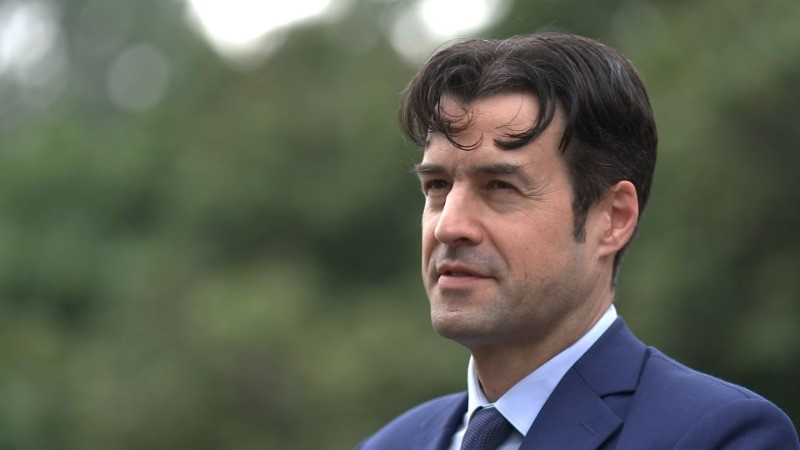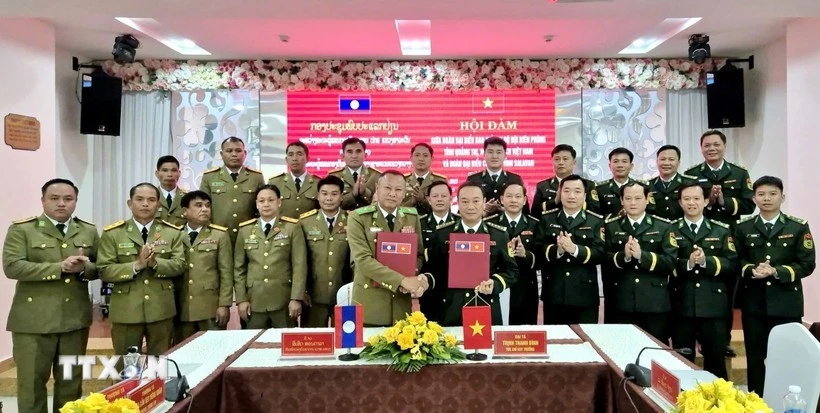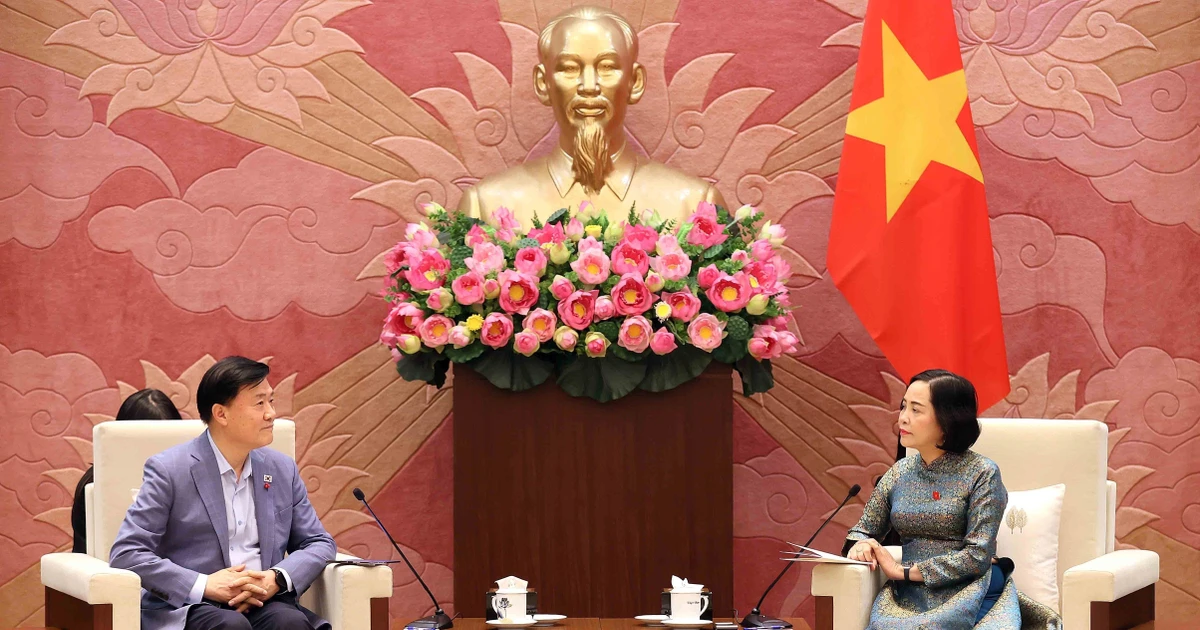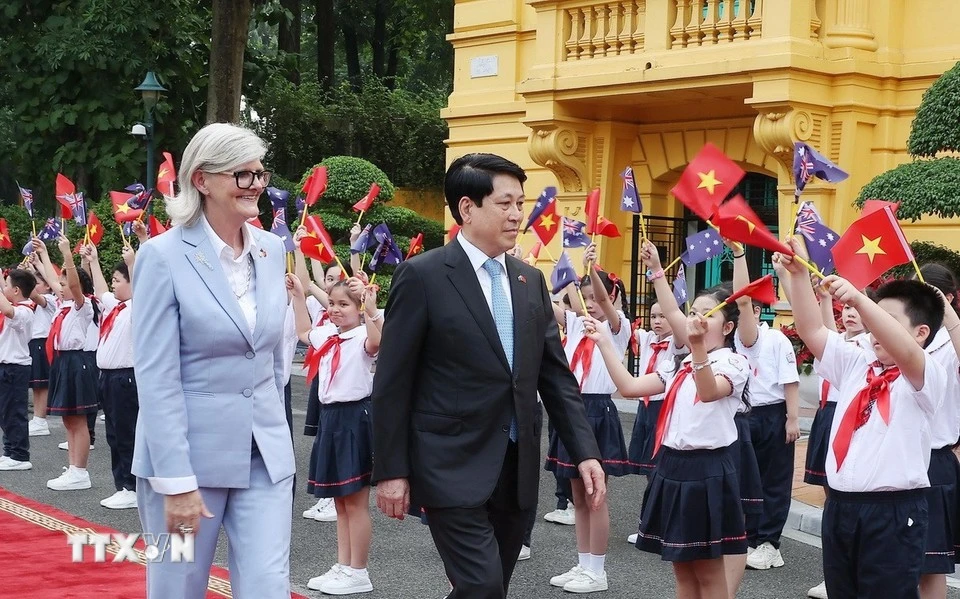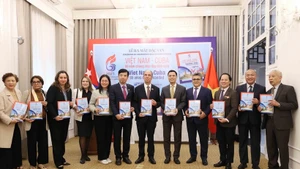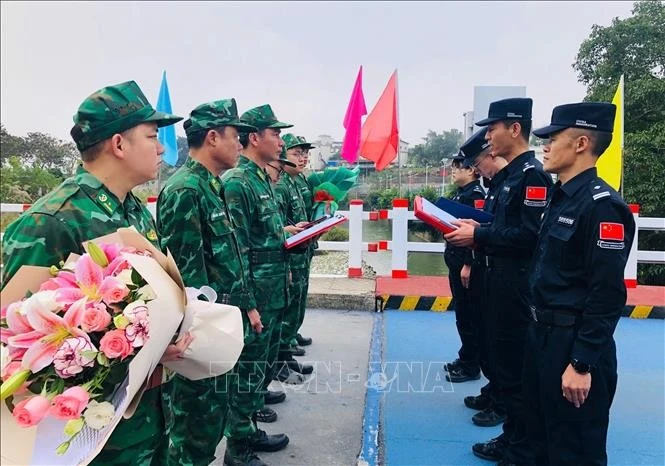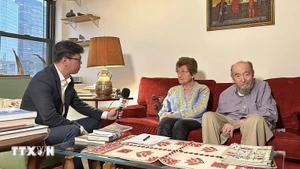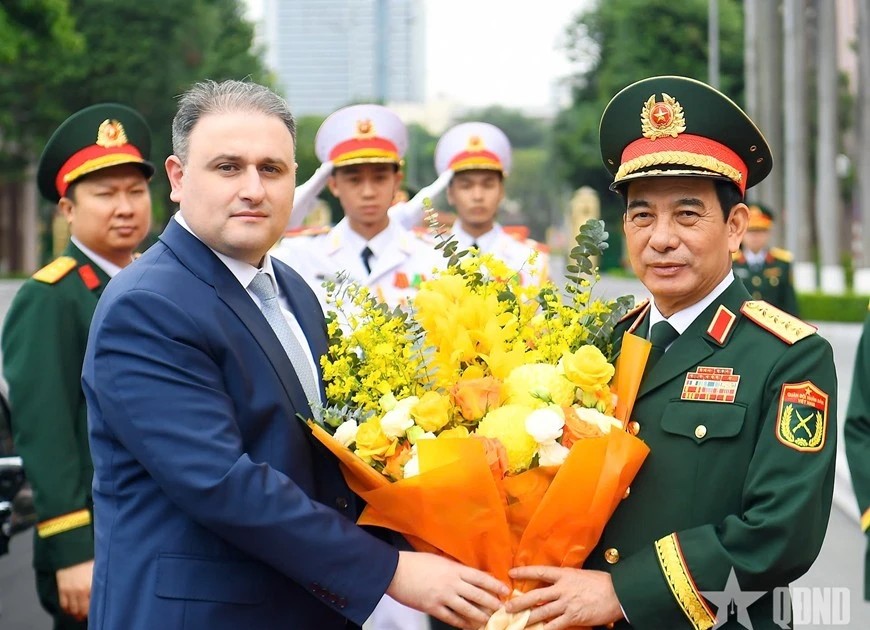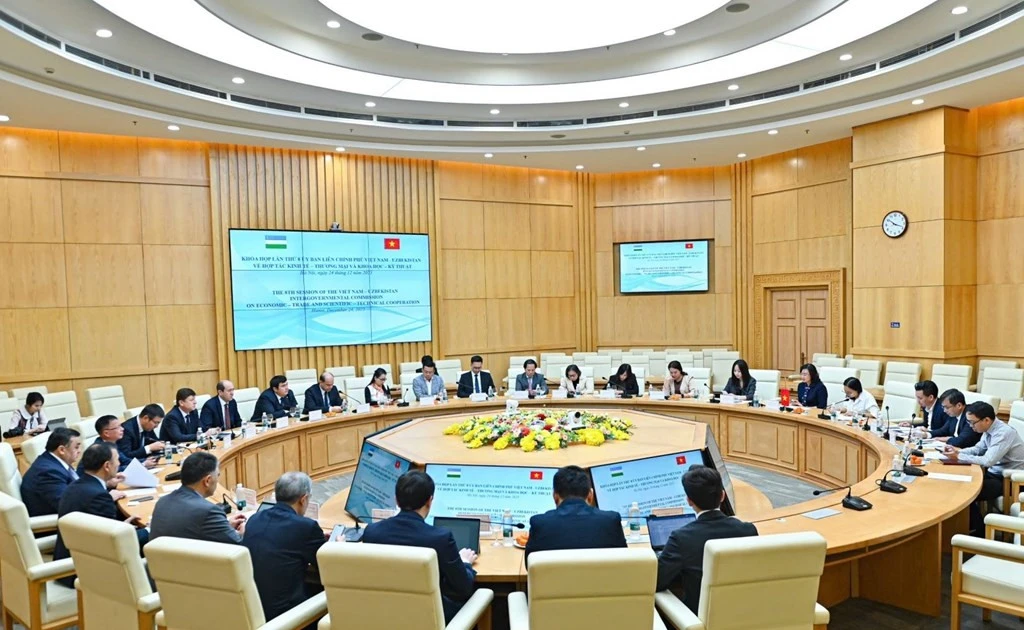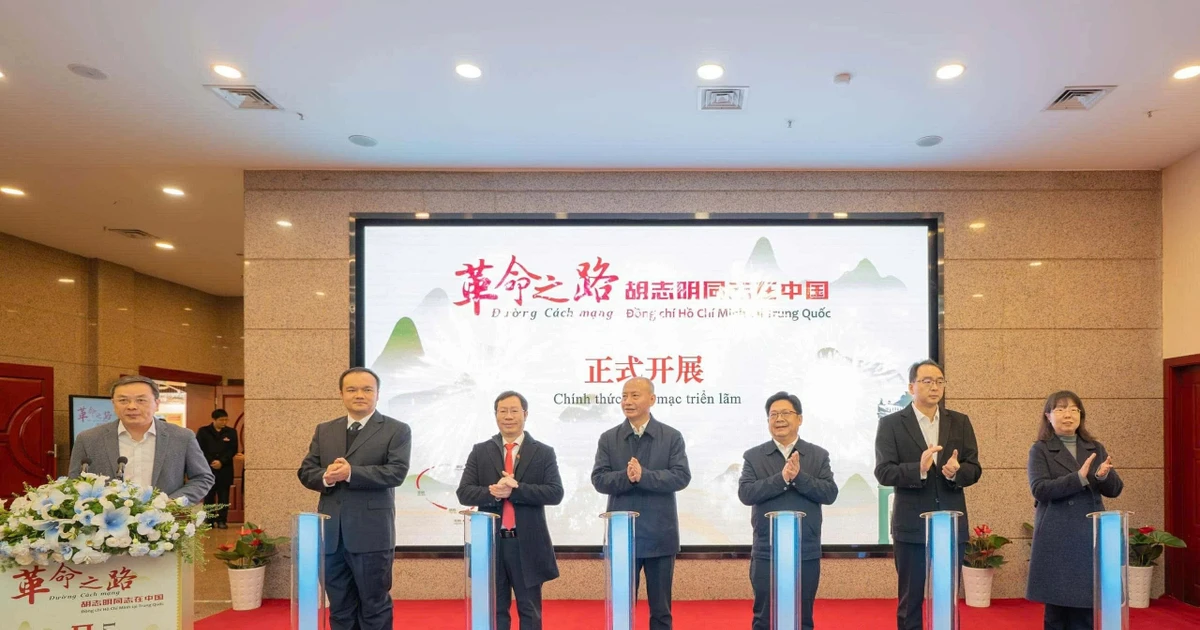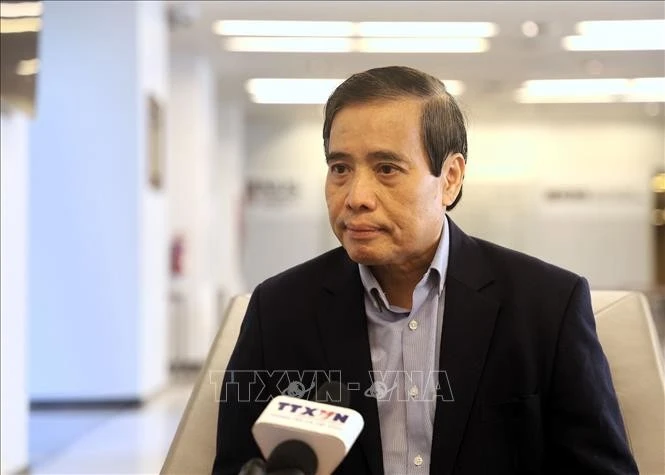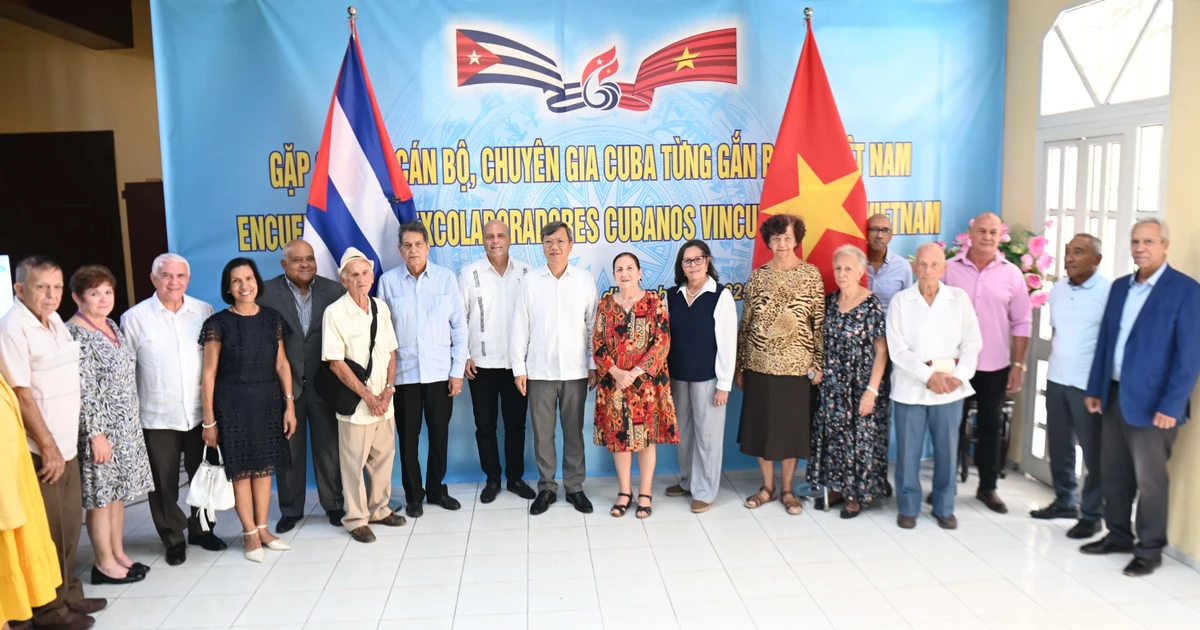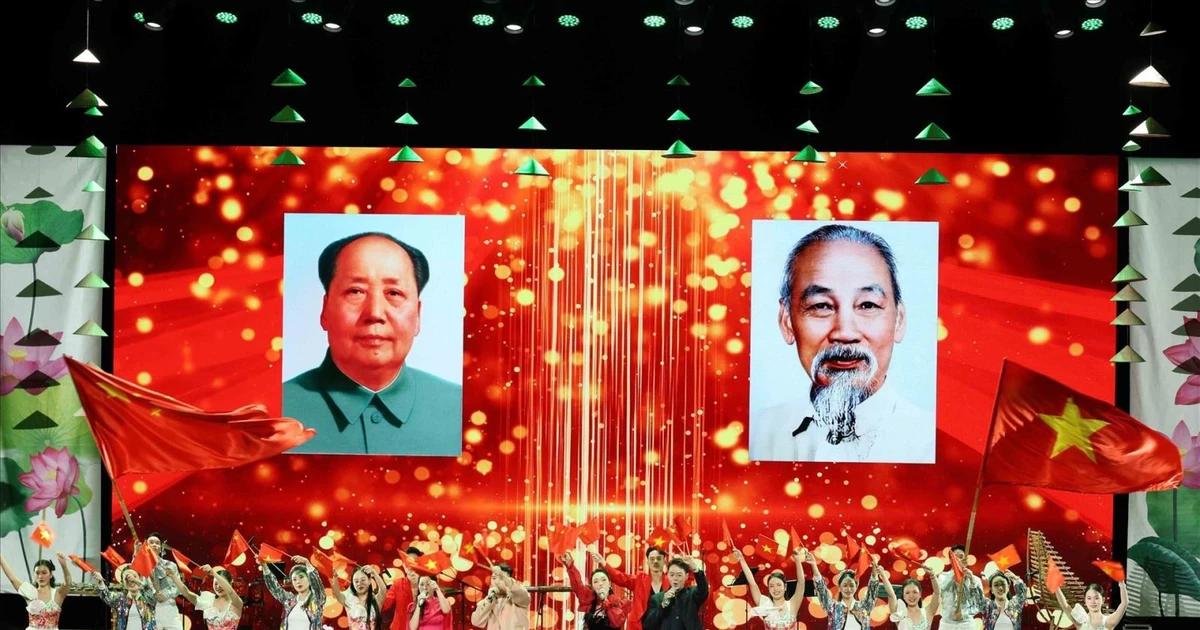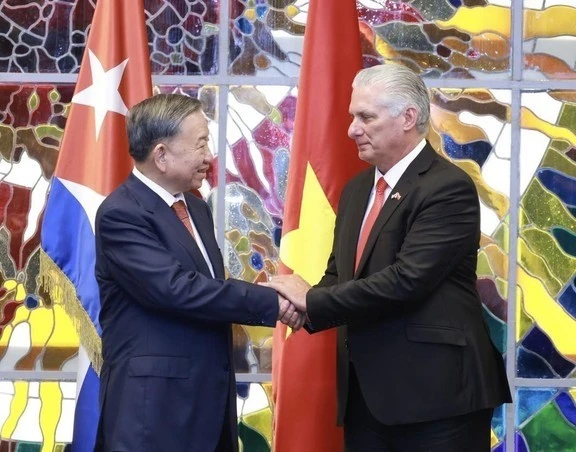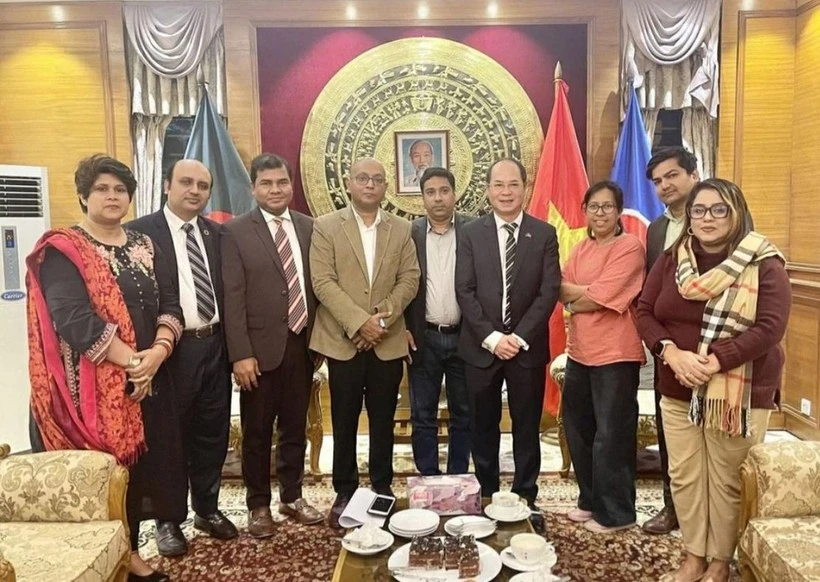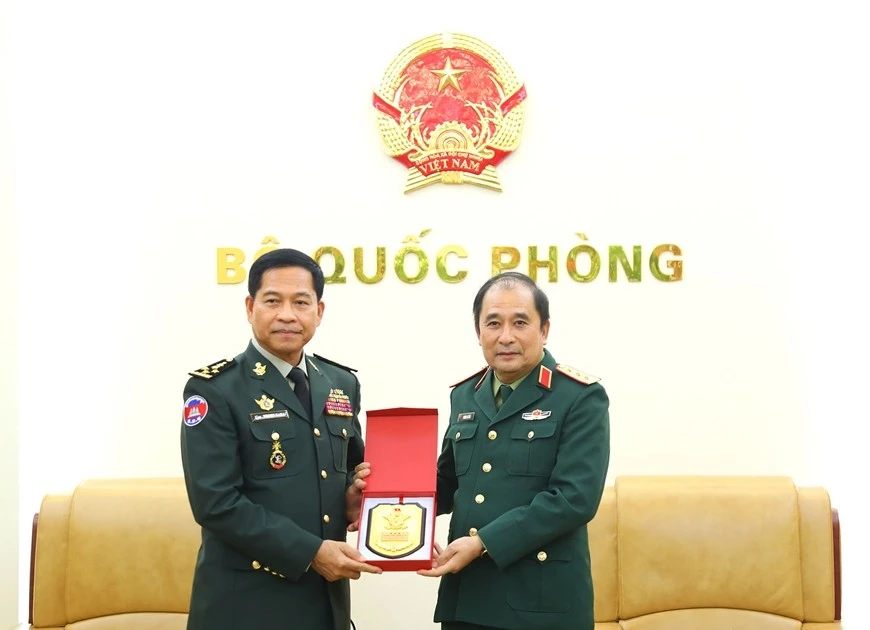Professor Pierre Journoud is a historical advisor accompanying President Emmanuel Macron's high-level delegation to Viet Nam from May 25 to 27.
This is the fifth visit by a French head of state to Viet Nam and the fourth French President to Viet Nam in over 30 years since President François Mitterrand's visit in 1993, but the first visit by President Emmanuel Macron since taking office in 2017.
Deepening the comprehensive strategic partnership
Speaking to Nhan Dan (People) Newspaper reporters, Professor Pierre Journoud from Paul Valéry University Montpellier 3 stated that this much-anticipated visit carries special meaning for both bilateral and international relations.
On a bilateral level, the visit comes less than eight months after the official visit to France by General Secretary and President of Viet Nam To Lam in October 2024, during which the two countries elevated their strategic partnership (established in 2013) to a comprehensive strategic partnership. France thus became the eighth among 13 countries with such a relationship with Viet Nam since 2008, and notably, the first European nation on the list.
In the past six months, bilateral exchanges and cooperation mechanisms have significantly expanded. More than 10 French delegations have visited Viet Nam, including four ministerial and government-level delegations and six missions representing leading French enterprises. In December 2024, the two countries also held the first Maritime Dialogue between the foreign ministries of Viet Nam and France.
High-level consultations have become more frequent and span a wide range of areas, including politics, strategy and defence, economy, and culture. In addition, there has been longstanding decentralised cooperation between local governments in both countries.
One notable recent milestone was the first-ever presence of two French government ministers at Viet Nam’s official ceremony commemorating the 70th anniversary of the Dien Bien Phu Victory on May 7, 2024. France was represented by Minister of the Armed Forces Sébastien Lecornu and Secretary of State for Veterans and Remembrance Patricia Mirallès.
Professor Journoud emphasised that the two countries have confronted their shared past openly and from all angles, towards building a foundation for a practical and mutually trusting relationship. Over the past decades, alongside Viet Nam’s economic and diplomatic rise, bilateral ties have been steadily strengthened and deepened.
This visit aims to further highlight the long-standing, diverse, and dynamic bilateral relationship, grounded in a constructive and forward-looking interpretation of our shared history. It also symbolises a successful reconciliation.
Professor Pierre Journoud
Professor Journoud also pointed out that the international context adds further significance to the visit. The world is witnessing the rise of increasingly complex geopolitical dynamics, while Viet Nam emerges as a rising power in ASEAN, actively pursuing a balanced foreign policy known as the “Vietnamese bamboo diplomacy.”
France and Viet Nam share common principles in defending the foundation of peaceful international relations: a commitment to preserving global balance, especially multilateralism under the United Nations and interregional dialogue; respect for and upholding of national sovereignty and international law, particularly the Law of the Sea; and the promotion of peace. The global strategic convergence is currently delivering many positive outcomes, Professor Journoud concluded.
Highlights in France-Viet Nam relations
According to Professor Pierre Journoud, the first and most prominent strength lies in the diversity of stakeholders and sectors, as well as the various mechanisms for consultation and exchange between the two countries. From civil society to high-level leaders, along with local authorities and associations, both the French and Vietnamese people seek to understand each other, exchange ideas, and cooperate.
The bilateral relationship is marked across multiple domains including politics and diplomacy, administration and law, military, culture and technology, ecology and science, economy and trade. In the field of diplomacy, French and Vietnamese delegations engage in close consultations at international or regional organisations such as the United Nations, including ASEAN-EU dialogue, ASEM, and the International Organisation of La Francophonie (OIF).
The second strength lies in the two sides maintaining dialogue even during the most difficult periods experienced by the Vietnamese people, from the 1950s to the 1980s. Both countries have valued dialogue to promote exchanges and cooperation in essential areas such as healthcare — an area in which many Vietnamese intellectuals have studied and conducted research in France for a long time.
One of the brightest aspects of France-Viet Nam relations is their cooperation in higher education. A prime example is the University of Science and Technology of Ha Noi (USTH), established in 2012, which has trained 200 Vietnamese researchers and currently enrols around 5,000 students. The Viet Nam-France High-Quality Engineering Training Programme (PFIEV) has produced over 9,000 Vietnamese engineers. The French-Vietnamese Centre for Management Education (CFVG) has trained more than 5,000 Vietnamese students, many of whom now hold senior positions in local Vietnamese companies.
Viet Nam is among the most vulnerable countries in the world to climate change. Recently, sustainable development has become a key area of cooperation between the two countries, leading to increased French investment, especially through the French Development Agency (AFD) in Viet Nam. With 16.7 billion EUR in concessional loans granted from 1993 to 2022, France is the leading bilateral donor of Official Development Assistance (ODA) to Viet Nam. Conversely, Viet Nam is the second-largest global recipient of ODA from France.
Strengthening economic cooperation
According to Professor Pierre Journoud, while economic and trade exchanges between the two countries are increasing, they remain far below potential and have even relatively declined since the 2000s. This fact has long been recognised, yet no more effective solutions have emerged. France’s market share in Viet Nam has dropped from 4–5% in the late 1990s to under 1% today. The directorate general of the French Treasury has acknowledged France’s modest presence in Viet Nam.
In 2023, France was Viet Nam’s 24th largest trading partner, accounting for just 0.7% of the total goods trade. In 2024, despite investments having a qualitative impact in areas such as the pharmaceutical industry, France was only the fifth-largest European investor in Viet Nam in terms of capital flows. Conversely, Vietnamese FDI in France, as elsewhere, remains modest. However, the current trend of internationalisation among major Vietnamese private corporations will likely create new momentum.
Furthermore, French exports are overly reliant on a few key sectors such as aerospace, pharmaceuticals, insurance, and the food industry, and are concentrated in a few major corporations like Airbus, Thales, Safran, EDF, TotalEnergies, Bouygues, and RATP. Therefore, there is a need to further diversify economic actors by encouraging the involvement of small and medium-sized enterprises (SMEs).
According to Professor Pierre Journoud, when analysing the remaining shortcomings in the bilateral relationship, the economic and cultural fields should not be viewed in isolation. To achieve greater effectiveness and overcome the limitations of geographical and cultural distance, both sides must promote university-level training in language and culture in both countries. There is also a need to strengthen interaction between economic and cultural actors, promote the establishment of representative offices — especially by Vietnamese companies in France, such as Viettel or FPT — and diversify approaches.
In recent years, France and Viet Vam have expanded initiatives to raise awareness about the economic development potential between the two countries and to connect students more closely with economic players and potential employers.
The upcoming state visit by President Emmanuel Macron will undoubtedly serve as an occasion to announce several important initiatives to increase French investment in Francophone sectors, the training of Vietnamese students, and support for cultural and creative industries.
Prospects for bilateral relations
Professor Pierre Journoud remarked that the prospects for the development of bilateral relations are highly promising. Since being classified as a “middle-income country” in 2010, Viet Nam has made rapid progress, now ranking 34th in the world in terms of GDP and aiming to achieve the status of a developed nation by 2045. The emergence of a middle class with increasing purchasing power presents growing opportunities for French businesses seeking to cooperate with and invest in this dynamic country.
Viet Nam continues to pursue bold strategies to move forward. Earlier this year, General Secretary To Lam introduced ambitious reforms to modernise the state administrative apparatus and local government, alongside intensified anti-corruption efforts.
Viet Nam’s position and reputation on the international stage have steadily increased, thanks to its political and security stability and a growing openness to the world within the framework of its skilful “Vietnamese bamboo diplomacy.” Viet Nam plays a key role in ASEAN — a region that France is also increasingly engaging with — and promotes peaceful diplomacy, as seen in its hosting of major summits, such as the meeting between US President Donald Trump and leader of the Democratic People's Republic of Korea (DPRK) Kim Jong-un in Ha Noi in 2019.
Professor Journoud emphasised that Viet Nam has become a highly reputable destination, offering absolute safety and security. “Ultimately — and perhaps most importantly — it is the dynamism, openness, curiosity, and warmth of the Vietnamese people that offer unparalleled intrinsic value,” he noted.
France’s guiding principle in the relationship remains its expertise and know-how in various fields: sustainable development, cultural and creative industries, higher education and research, healthcare, e-governance, and engineering, among others. This is supported by France’s leadership role within the European Union and the sustained attention of French leaders toward the Indo-Pacific region, with a particular focus on Southeast Asia and Viet Nam.
Furthermore, the large Vietnamese community in France — numbering over 300,000 — continues to make important contributions to strengthening ties between the two nations.
“There is no doubt,” Professor Journoud stated, “that France-Viet Nam relations will grow even closer, with new agreements across critical sectors such as education and training, research and innovation, energy transition and critical minerals, aviation and space, local and national transportation, and even nuclear energy. However, to achieve these essential transformations, France and Viet Nam must modernise the foundations of their cooperation — many of which date back to the 1990s — and engage in long-term partnerships in strategically significant areas for both countries.”
Professor Pierre Journoud, a historian at Paul Valéry University Montpellier 3, served as historical advisor for the French President Emmanuel Macron’s visit to Viet Nam from May 25–27 He previously joined visits to Viet Nam by French Minister of the Armed Forces Sébastien Lecornu and Secretary of State for Veterans and Remembrance Patricia Mirallès in May 2024; Prime Minister Édouard Philippe in November 2018; and President François Hollande during his 2016 state visit.
Professor Journoud is the author of numerous books on the history of Franco-Vietnamese relations, including several works on the Dien Bien Phu Battle, such as “Memories of Dien Bien Phu: Eyewitness Accounts” (2004), “General De Gaulle and Viet Nam: 1954–1969”, “Reconciliation”, “Dien Bien Phu – The End of a World”, and “The Art of Vietnamese Warfare”. He has also produced extensive research on Viet Nam and France-Viet Nam relations.
For many years, Professor Pierre Journoud has actively contributed to Franco-Vietnamese cooperation in the fields of education, culture, and humanitarian work.
